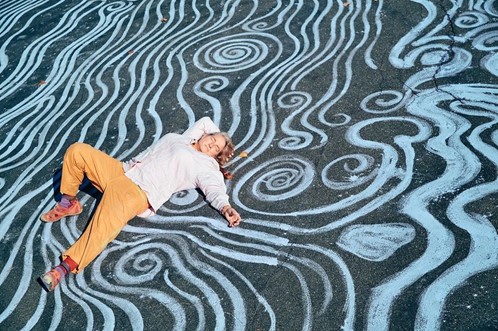As a Jesuit University, Loyola offers many faith and justice-based programs that allow students to interact with the injustices of the world firsthand. Justice Walking, developed by Just Faith Ministries, is one of these programs Loyola offers to students during the spring semester.
This eight-week program is meant to engage students in community through prayer, action, and shared dialogue with fellow justice walkers, or j-walkers. The program is organized so that every other week students are able to engage in meaningful interactions with members of My Sister’s Place Lodge.
My Sister’s Place Lodge is a transitional housing program for homeless women diagnosed with mental disabilities in the Baltimore community. The program provides 24-hour support for these women while also working to help them develop key life skills.
 During the weeks that students visit My Sister’s Place Lodge, they partake in art therapy with four to 10 of the women that live there. Throughout these sessions, students have the opportunity to work on group as well as individual projects with the women while also participating in a dialogue with them.
During the weeks that students visit My Sister’s Place Lodge, they partake in art therapy with four to 10 of the women that live there. Throughout these sessions, students have the opportunity to work on group as well as individual projects with the women while also participating in a dialogue with them.
Hannah Lee ’20 participated in Justice Walking last spring.
“I learned that art is a great outlet to cope with any emotional or mental struggles one might be going through,” Lee said. “More importantly, the women there really appreciated having young visitors to accompany them in something so intimate and special.”
Through these art therapy exercises, students are able to share their stories while also hearing the stories of the women that live at the center. This model of engaging in community follows a theory posed by the Rev. Peter-Hans Kolvenbach that:
“Solidarity is learned through contact rather than concepts. When the heart is touched by direct experience, the mind may be challenged to change. Personal involvement with innocent suffering, with the injustice others suffer, is a catalyst for solidarity which then gives rise to intellectual inquiry and moral reflection.”
Lee found that this was true of her experience with Justice Walking.
“They told us that us coming brightened their day and gave them hope for the future. We heard some of their life experiences and stories, which was always so very inspiring and eye-opening,” she said. “It was just so peaceful and meaningful to spend an hour of my Monday evening with them.”
During the weeks that students don’t participate in the art therapy sessions at My Sister’s Place Lodge, they attend sessions on campus with other members of the program to discuss different social justice issues affecting the Baltimore and great world community.
Assistant Director of Campus Ministry Elise Gower explained that these sessions are uniquely shaped to mirror the structure of the Catholic Mass. They begin with the Liturgy of the Word by reading stories from the community in the form of news articles.
Each week students bring in different news articles that reflect a story from the community, and in turn, the session’s dialogue typically flows from the social justice issues present in the story.
“Students can bring in all different justice issues,” Gower said.
However, the conversation does typically surround a different topic based off of the seven themes of the Catholic Social Teachings: life and dignity of the human person; call to family, community, and participation; rights and responsibilities; option for the poor and vulnerable; the dignity of work and the rights of workers; solidarity; and lastly care for God’s creation.
Together these seven themes create a basic curriculum for the program to follow throughout the semester.
Additionally, students are given supplementary materials to read throughout the semester with the books “A Monk in the Inner City” by Mary Lou Kownacki and “With Open Hands” by Henri Nouwen.
Graduate Assistant of Social Justice and Immersion Elizabeth Nawrocki will be running Justice Walking in the spring and also explained that each week students will be given different action items to complete that week.
“Students will be challenged to increase or decrease different practices each week,” she said.
For example, students might be challenged to increase the amount of local shopping they do opposed to commercial shopping or decrease the amount of screen time they have to spend more time in silence and reflection.
At the end of the semester, students will have built a better understanding of their relationships with other people as well as their responsibilities to others and the world.
For more information: http://www.loyola.edu/department/campus-ministry/justice/faith-and-justice
Featured photo courtesy of Aaron Blanco

















































































































Anonymous • Nov 20, 2017 at 8:56 pm
5